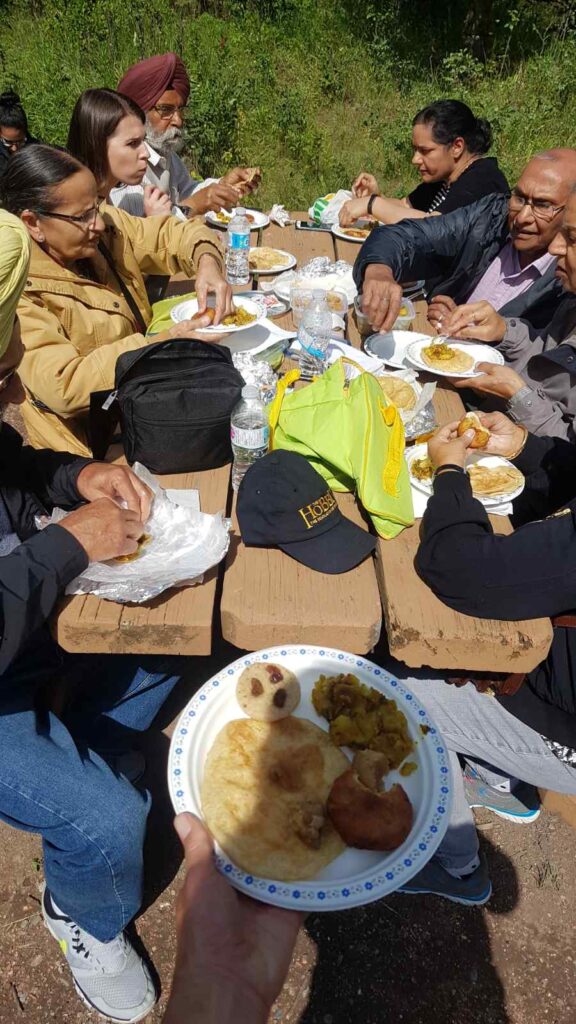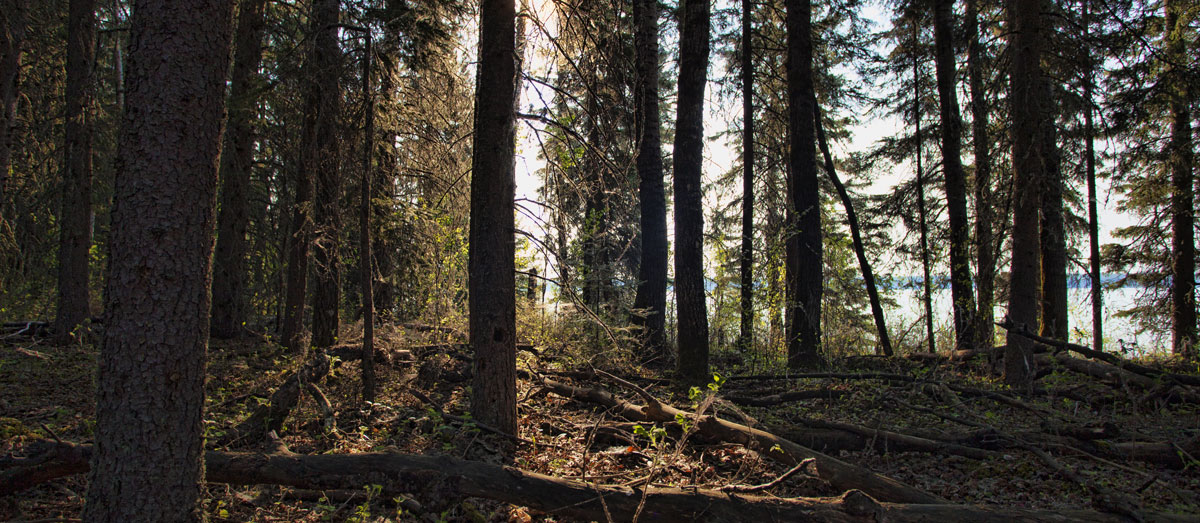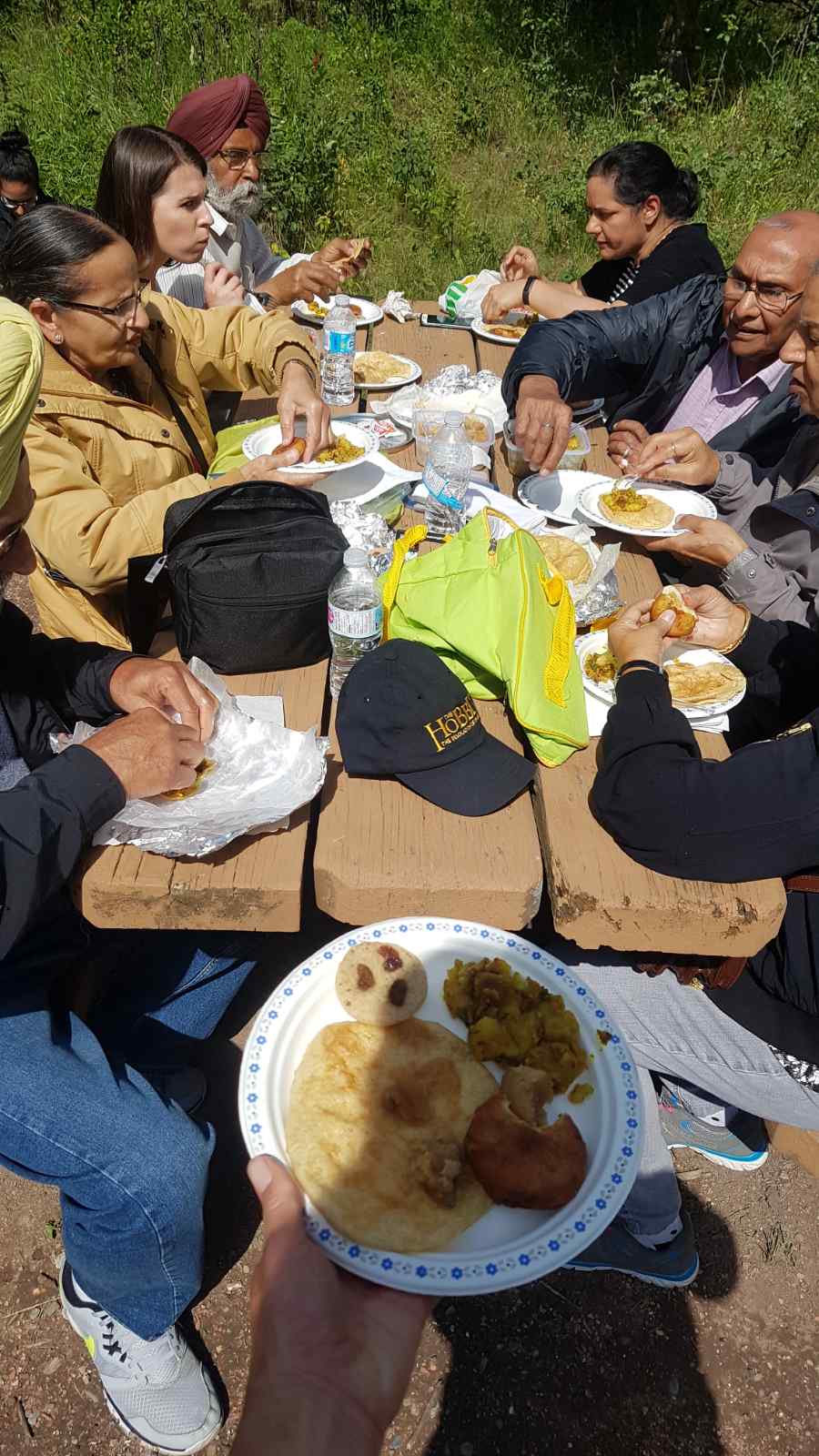By Jaclyn Angotti
Ever wonder why the world just feels better on a sunny day — or even a rainy day for that matter, if you’re outside?

Or why the brightest “light bulb moments” happen when you’re simply watching the clouds go by? Recent research confirms that our well-being is entwined with our connection to nature. We are part of an intricate web of life that includes humans, plants, animals, water, and the land itself. It is crucial to our well-being that we have a sense of belonging within this web of life.
So, how can you capture the benefits of nature for yourself, your loved ones, and your community? How can you help others to feel like they belong in nature?
Here are a three tips to get you started.
1. Touch, Taste, Smell, See, or Listen to Nature
Sensory connection to nature can decrease stress, lower heart rate and blood pressure, boost immune function, and so much more! Plus, it just feels great! You don’t have to go far in order to reap these rewards. Nature can be your houseplants, photos, your pets, the clouds in the sky, your lunch, a collection of nature sounds from your favourite streaming service, a nearby green space, or a local park. Wherever you are, nature is. Find simple ways for you and your loved ones to connect to nature with your senses everyday. CPAWS Southern Alberta at a new Canadian program enjoying all the benefits of nature and more!
2. Socialize in Nature
Social relationships can be essential to how we experience nature. By spending time with others in nature, we strengthen our sense of belong in nature and in our community. Sense of belonging is crucial to our holistic well-being. Help others feel that they belong by planning outdoor events for your community, such as a multicultural picnic or a learn-to-hike day. Plan opportunities for youth to play and explore nature together, as well as to spend time outdoors with adult mentors and elders.
3. Seek out Cultural Teachings
Culture evolved with nature. We can learn many important lessons about ourselves, nature, and environmentalism through cultural teachings. Look to mentors and elders in your community who can share these teachings with you. Help plan cultural events in the outdoors. Seek out opportunities for teachings from the original caretakers of this land — the Indigenous Nations of Treaty 7. By developing a deeper connection with culture — our own and our neighbours — we strengthen our feelings of belonging, identity, and sense of place. Environmental teachings rooted in culture can nurture emotional connection to land and an understanding of the interconnectedness of culture and nature.
Developing a sense of belonging in nature with our communities enables each of us to connect to nature and seek nature for our well-being. It inspires us to live in reciprocity within the web of life — to be grateful for the gifts that nature provides us and to give back to nature through stewardship and environmental action. All of nature’s gifts for our well-being can be unlocked by one simple act: getting outside — by yourself and with your community — for yourself and for your community.
Now get outside. Connect. Be well.
More Blog Posts

Fortress Mountain Resort: An Amusement Park in our Wilderness

Speak Up, Write Out: The Power of a Local Op-Ed


